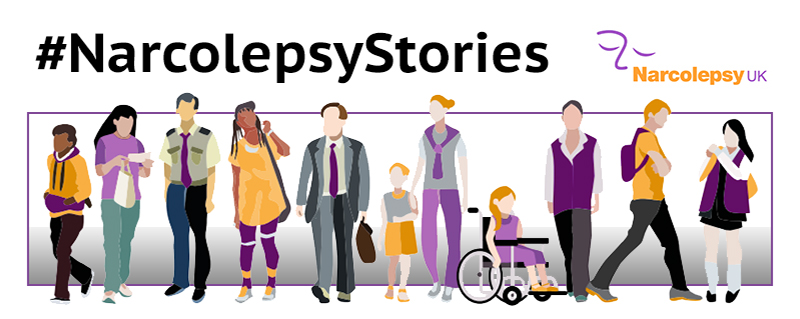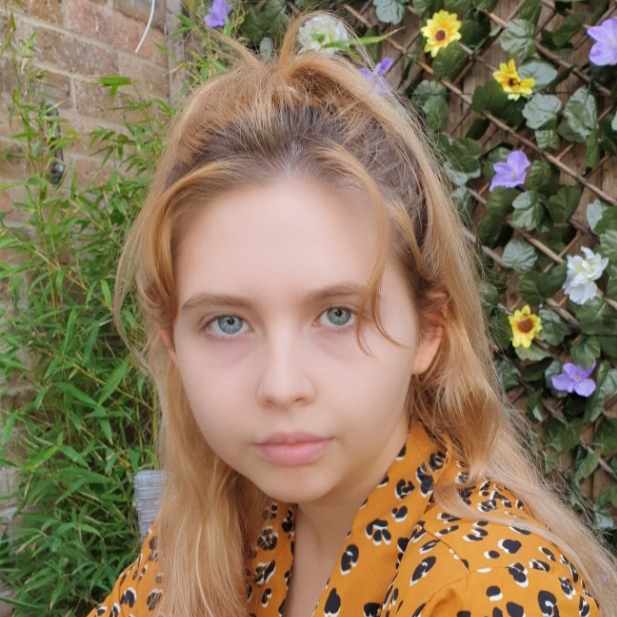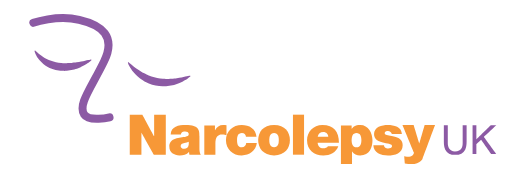
I had turned 13 and over the summer holidays, I began sleeping in until the afternoon and taking naps for the rest of the day. I put it down to feeling a bit depressed because my best friend at the time had moved away. My mum put it down to me being a lazy teenager. By the time I went back to school in September, the urge to sleep was becoming more frequent and more intense. I remember my eyes starting to sting in a religious studies lesson and I just wanted to shut them. At home, after school, I’d sit down and be asleep at exactly the same moment. I began to notice symptoms of cataplexy when walking to school. If my favourite song came on, for instance, my knees would go weak or my head tilt back. As long as these lapses were just momentary, I felt no need to mention them to my parents. I imagined these muscular weaknesses would go away, but they just got worse. Then, while out shopping, my dad made a joke, I laughed and experienced my first complete collapse in the middle of a hardware store. When this happened at school, it was embarrassing, and some of the pupils began to make fun of me.
The hallucinations continued, but the voice eventually took the shape of a dark figure standing in the corner of the bedroom.
I also began to experience sleep paralysis and hypnagogic hallucinations, though I didn’t know at the time that’s what they were. I’d wake up but be unable to move. I’d hear someone – a female voice – whispering my name and I was convinced there was someone in my room. I soon became so terrified of my own room that I would either sleep with my mum or make my sister sleep with me. The hallucinations continued, but the voice eventually took the shape of a dark figure standing in the corner of the bedroom.
My mum took me to the GP and he ran lots of tests, but they all came back normal. It was only because my mum begged that the doctor referred me to the hospital. My mum already had a feeling that it could be narcolepsy and cataplexy as she’d done some research, but the first specialist dismissed this in favour of a diagnosis of chronic fatigue syndrome. When my sister made me laugh and I had a fit during the appointment, the doctor changed his mind and referred me to a sleep centre. At my first meeting with a sleep specialist, she said he was pretty sure I had narcolepsy and cataplexy but would have to run some tests to confirm it. After one year, an MRI scan, an EEG, an overnight sleep study and a lumbar puncture (that was probably the most traumatic experience of my life), I was finally diagnosed with narcolepsy and cataplexy.
I gained a lot of weight from not being able to exercise, which really knocked my self-esteem. Some people at school bullied me because of my appearance, but the hardest thing growing up with narcolepsy and cataplexy was losing friends. I was reluctant to talk about it, so some of them didn’t understand what was going on. With others, I just couldn’t keep up with everything they were doing. As I’d missed so much of so many lessons through sleep, some of my teachers expected me to fail my GCSEs but they were wrong. I worked hard and was able to take my exams in a separate room to everyone else and sleep if I needed to. I went on to sixth form, managed to lose a lot of weight and began to rebuild my confidence. In my second year at college, I even started my first job. This was a major achievement for me because I’d been told I might have difficulty finding a job. I graduated in 2017 and am now working part-time in a school, thinking of going to university at some point.
Narcolepsy UK has been such a great help during my journey because I have been able to connect with people who know exactly what I’ve been through. As a teenager and even now, it gives me strength to know that I am not just a freak and that there are other people out there with the same condition as me. I’ve also made some really good friends that are always there for me when I need advice or just need to talk. This has helped me to feel more comfortable talking about narcolepsy without fear of judgement or discrimination.

This post is part of Narcolepsy UK’s #NarcolepsyStories project, where people with narcolepsy write frankly about what it’s like to live with this debilitating disability.
Narcolepsy is a spectrum disorder that affects everyone differently. However, people with narcolepsy will always find they have a lot in common, sharing their experience of the difficulty in securing a diagnosis, the years it takes to find a suite of medications that helps combat symptoms, the effect that extreme sleepiness can have on education, work and relationships and impact that cataplexy can have on confidence.
It is our hope at Narcolepsy UK that the #NarcolepsyStories project will contribute to our vision as set out in the #NarcolepsyUKCharter to provide the respect, care and support that people living with narcolepsy and their carers deserve.
How can you help?
- Spread the word by sharing these stories on your social media channels, using the hashtag #NarcolepsyStories.
- Put your signature to the #NarcolepsyUKCharter.
- Make a donation to Narcolepsy UK.
- Contribute your own story to the project by sending an email to stories@narcolepsy.org.uk.
2nd October 2020
